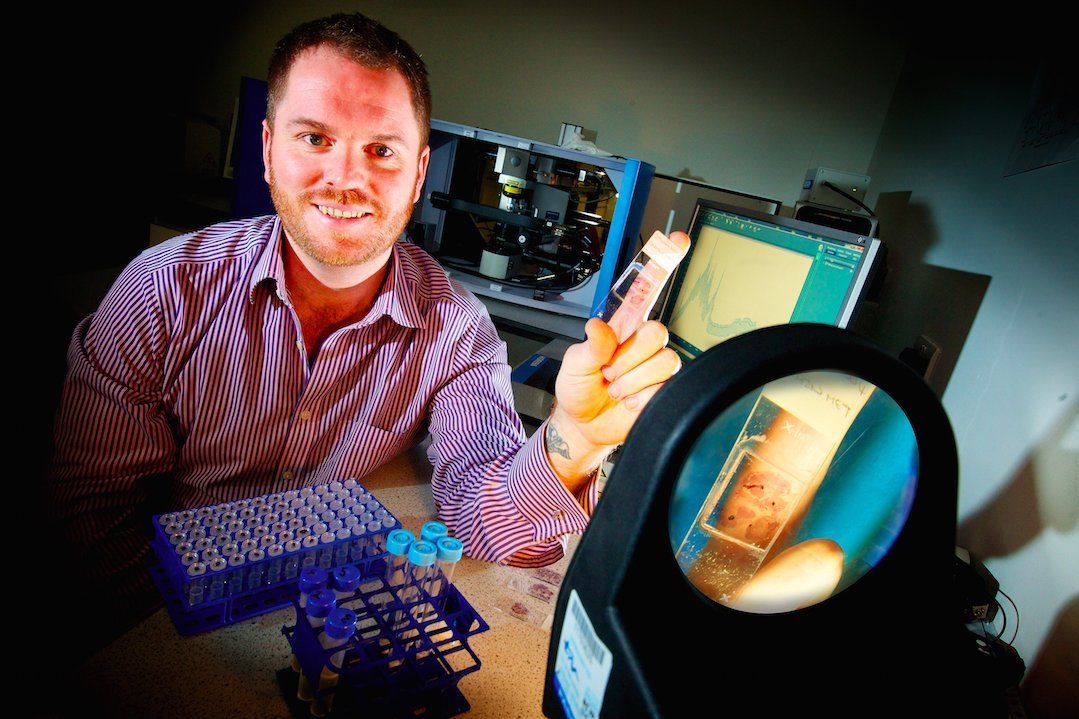Spectroscopy Announces the First Winner of the Emerging Leader in Molecular Spectroscopy Award
Matthew Baker, a senior lecturer in chemistry at the University of Strathclyde, in Glasgow, has won the inaugural Emerging Leader in Molecular Spectroscopy Award, which is sponsored by Spectroscopy magazine. This new annual award recognizes the achievements and aspirations of a talented young molecular spectroscopist, selected by an independent scientific committee. The award will be presented to Baker at the SciX 2016 conference in September, where he will give a plenary lecture and be honored in an award symposium.

Matthew Baker, a senior lecturer in chemistry at the University of Strathclyde, in Glasgow, has won the inaugural Emerging Leader in Molecular Spectroscopy Award, which is sponsored by Spectroscopy magazine. This new annual award recognizes the achievements and aspirations of a talented young molecular spectroscopist, selected by an independent scientific committee. The award will be presented to Baker at the SciX 2016 conference in September, where he will give a plenary lecture and be honored in an award symposium.
After receiving his PhD in 2007 from the University of Manchester, Baker received a Life Sciences Interface fellowship from the UK’s Engineering and Physical Sciences Research Council (EPSRC). This fellowships focused on biomedical applications of vibrational spectroscopy, mass spectrometry, and imaging and took him to the Manchester Interdisciplinary Centre in the UK, to the Robert Koch Institute in Berlin, and to Harvard Medical School in Boston. He also spent a term as a visiting academic at Monash University in Melbourne, Australia. He then spent two years at the UK Ministry of Defense, including a period as a visiting researcher at the University of Southampton, where he led research on the detection of chemical, biological, and toxin agents of interest. He then returned to academia, moving first to the University of Central Lancashire and then to the University of Strathclyde in 2014.
At Strathclyde, Baker leads interdisciplinary research rooted in fundamental studies to advance the application of analytical chemistry to real world problems in the biomedical, clinical, defense, and security domains. His main focus is the development of spectroscopic and spectrometric molecular pathology, disease diagnosis, and the detection of pathogenic bacteria and toxic chemicals.
In particular, Baker has pioneered the use of vibrational spectroscopy for clinical diagnostics. He has developed an accurate, reproducible, and repeatable method using vibrational spectroscopy for brain tumor diagnosis that is suitable for clinical applications, and he is currently expanding this approach using novel light sources to enable rapid, high-throughput imaging. In addition, he has contributed key papers to the field; organized, chaired, and developed clinical spectroscopy sessions at the SciX conference; co-organized a Faraday Discussion of the Royal Society of Chemistry on “Advanced Vibrational Spectroscopy for Biomedical Applications;” cowritten a concise physics e-book for the Institute of Physics; and guest edited three journal issues.
Recently, Baker coinstigated and coformed the UK Clinical Infrared and Raman Spectroscopy (CLIRSPEC) Network, from which has emerged the charitable International Society for Clinical Spectroscopy, which has the specific aim to translate promising vibrational spectroscopy methods into the clinic. He is also a member of Raman4Clinics, a European consortium focused on the use of Raman spectroscopy in the clinic. He has also developed the successful CLIRSPEC Summer School, now in its second year, to provide an interdisciplinary education to a broad range of students interested in clinical spectroscopy.
For information about how to nominate someone for the 2017 award, please see the call for nominations.
How Satellite-Based Spectroscopy is Transforming Inland Water Quality Monitoring
Published: April 29th 2025 | Updated: April 29th 2025New research highlights how remote satellite sensing technologies are changing the way scientists monitor inland water quality, offering powerful tools for tracking pollutants, analyzing ecological health, and supporting environmental policies across the globe.
Introduction to Satellite and Aerial Spectral Imaging Systems
April 28th 2025Modern remote sensing technologies have evolved from coarse-resolution multispectral sensors like MODIS and MERIS to high-resolution, multi-band systems such as Sentinel-2 MSI, Landsat OLI, and UAV-mounted spectrometers. These advancements provide greater spectral and spatial detail, enabling precise monitoring of environmental, agricultural, and land-use dynamics.
AI-Powered SERS Spectroscopy Breakthrough Boosts Safety of Medicinal Food Products
April 16th 2025A new deep learning-enhanced spectroscopic platform—SERSome—developed by researchers in China and Finland, identifies medicinal and edible homologs (MEHs) with 98% accuracy. This innovation could revolutionize safety and quality control in the growing MEH market.
New Study Reveals Insights into Phenol’s Behavior in Ice
April 16th 2025A new study published in Spectrochimica Acta Part A by Dominik Heger and colleagues at Masaryk University reveals that phenol's photophysical properties change significantly when frozen, potentially enabling its breakdown by sunlight in icy environments.